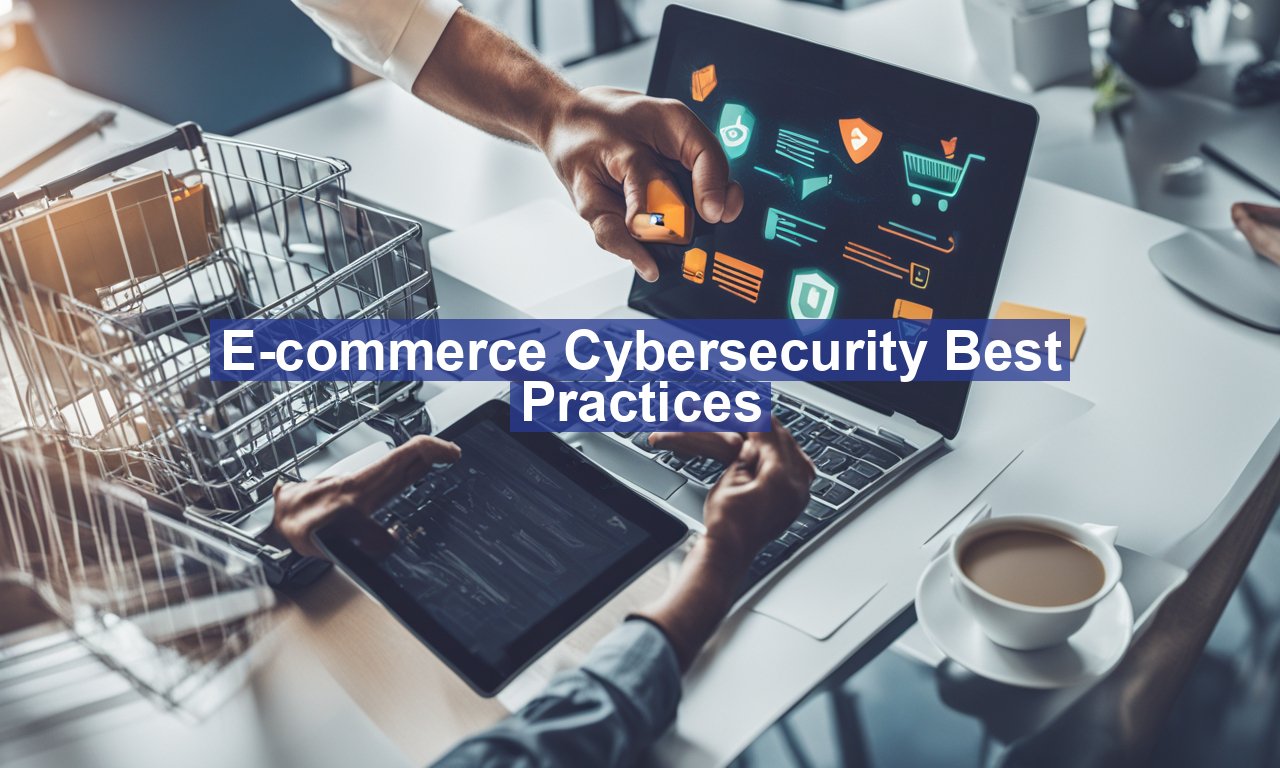E-commerce cybersecurity best practices in the dynamic and rapidly evolving world of e-commerce, cybersecurity stands as the guardian between your business and potential threats. Whether you are a small business owner or managing a large online retail empire, understanding and implementing cybersecurity best practices is crucial to maintaining customer trust and safeguarding your financial assets.
In this article, we’ll walk you through essential strategies and tips that every e-commerce business should embrace to secure their digital frontier.
E-commerce Cybersecurity Best Practices Step-by-Step Guide
Understand the Threat Landscape
The first step towards robust cybersecurity in e-commerce is recognizing the various threats your business may face. Cybercriminals are becoming increasingly sophisticated, employing methods like phishing, malware, and ransomware to exploit vulnerable systems. According to a report from Cybint, 95% of cybersecurity breaches are due to human error, highlighting the importance of awareness and training. Familiarizing yourself with these threats can help you develop a proactive stance against potential breaches.
Implement Multi-Factor Authentication (MFA)
Multi-Factor Authentication (MFA) is a critical component of e-commerce security. MFA requires users to provide two or more verification methods to gain access, significantly reducing the risk of unauthorized users infiltrating your system. By utilizing something you know (like a password), something you have (such as a smartphone), or something you are (biometrics), you increase the security barrier exponentially and make it far more challenging for hackers to penetrate your systems.
Secure Your Payment Gateway
Your payment gateway is the lifeline of your e-commerce business, handling sensitive customer information daily. Ensuring it’s secure is paramount to maintaining consumer trust. Choose a payment gateway provider that offers features like tokenization and is fully compliant with Payment Card Industry Data Security Standard (PCI DSS). This compliance ensures that cardholder data is tightly secured and monitored, reducing the chances of a cybersecurity breach involving financial data. For more details, explore the PCI Compliance Guide.
Encrypt Data Rigorously
Encryption serves as a cornerstone in e-commerce security by transforming sensitive data into an unreadable format, accessible only to those with the correct decryption key. Implement SSL/TLS encryption to safeguard data transferred between your web server and your customers. This layer of protection not only secures credit card details and personal information but also instills a sense of security within your customer base, enhancing your brand’s credibility.
Regularly Update and Patch Systems
Out-of-date software and systems are a leading vulnerability that cybercriminals exploit. To mitigate risks, regularly apply patches and updates to your software, applications, and operating systems. This simple yet effective strategy closes security gaps that could be exploited for unauthorized access. Automating these updates can ensure that your system is always fortified against newly emerging threats.
Conduct Regular Security Audits
Frequent security audits are crucial to identifying potential vulnerabilities within your e-commerce infrastructure. These audits, which include penetration testing and vulnerability assessments, help uncover weaknesses that hackers could exploit. Engaging a professional cybersecurity firm to conduct these audits periodically will provide insights into your security posture and guidance on how to bolster your defenses.
Educate and Train Your Staff
With human error accounting for the majority of cybersecurity breaches, educating your team is just as important as the technology you deploy. Implement comprehensive training programs that cover topics such as recognizing phishing scams, secure password practices, and data handling procedures. By fostering a culture of security awareness within your organization, you significantly reduce the likelihood of cyber threats arising from employee actions.
Craft a Robust Privacy Policy
A transparent and concise privacy policy not only complies with legal requirements but also builds trust with your customers by informing them of how their data is handled. Ensure your privacy policy is easily accessible on your website and is clear about how you collect, store, and use customer information. Keeping this policy up-to-date with evolving laws and technology practices is also essential, as new regulations like GDPR and CCPA have set high standards for data protection.
Backup Data Regularly
Regular data backups are a fundamental practice that can save your e-commerce venture in the event of a cyber attack. Use automated solutions to perform daily backups of critical information, ensuring that data is stored both on-site and off-site through cloud services. Having comprehensive backups allows for quick recovery of operations with minimal data loss in the unfortunate event of a cybersecurity breach.
Stay Informed and Adaptable
The cybersecurity landscape is continually changing, with new threats emerging regularly. As such, staying informed about the latest security trends and threats is essential. Resources like CSO Online offer up-to-date news, analysis, and expert advice on tackling the latest cybersecurity challenges. Adapting your strategies to reflect the latest threats and security practices ensures your e-commerce operations remain resilient against even the most sophisticated attacks.
By incorporating these E-commerce cybersecurity best practices, your e-commerce business can maintain a fortified and trusted digital presence. Not only do these measures protect your bottom line, but they also reinforce consumer confidence, ensuring your customers feel secure knowing their data is in safe hands. Implementing these strategies will empower you to face the ever-changing cybersecurity landscape with confidence and resilience.


